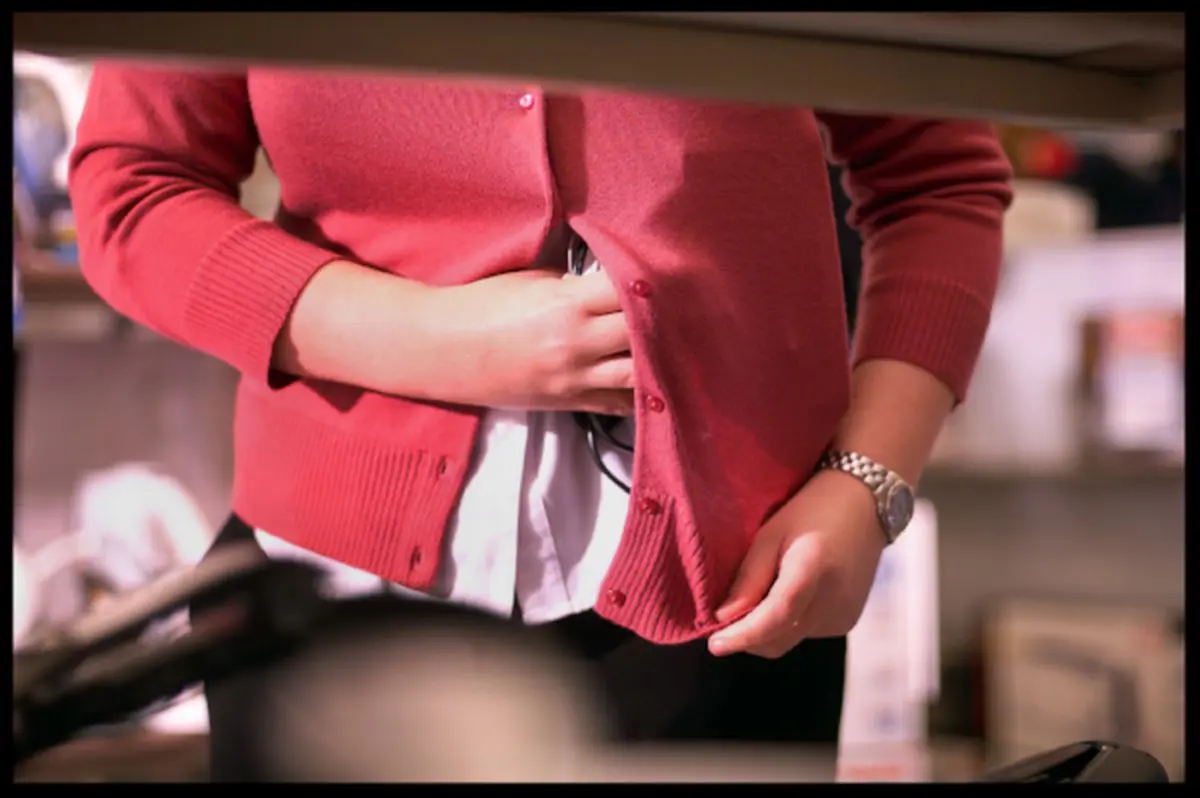
Table of Contents
Shoplifting Charges
Whether you’re innocent or guilty, if you’ve been arrested for stealing merchandise from a retail store in New York City, you need an experienced shoplifting lawyer to fight back.
Shoplifting charges often result from:
- Overly aggressive store security;
- Misunderstood intentions; or
- A combination of both.
Shoplifting charges also result from getting caught red-handed.
Shoplifting Law
Shoplifting involves stealing merchandise from a store.
If a store employee sees you steal property, you’ll be charged with “petit larceny” (pronounced “petty larceny”):
“A person is guilty of petit larceny when he steals property.”
If a store employee doesn’t see you steal property, but finds you in possession of stolen property (perhaps when you set off an alarm while exiting the store), you’ll be charged with criminal possession of stolen property in the fifth degree:
A person is guilty of criminal possession of stolen property in the fifth degree when he knowingly possesses stolen property, with intent to benefit himself ….
These crimes are class A misdemeanors, with a maximum penalty of 1 year in jail.
If the amount stolen is greater than $1,000, you’ll be charged with grand larceny in the fourth degree or criminal possession of stolen property in the fourth degree. These crimes are class E felonies, with maximum penalties of 4 years in jail.
If the amount stolen is greater than $3,000, you’ll face even more serious charges.
Shoplifting Methods
Situations where you might get arrested for shoplifting include:
- Carrying concealed merchandise – in your pocket, backpack, pocketbook, shopping bag – while exiting the store.
- Removing anti-theft tags from store merchandise.
- Placing merchandise in a “booster bag” (a bag insulated with material that conceals anti-theft tags from electronic security monitors).
- Switching price tags from a from less-expensive merchandise to more-expensive merchandise.
- Coordinating with a store employee who doesn’t ring up all your merchandise – an inside job.
Mistaken for a Shoplifter
It’s easy to be mistaken for a shoplifter, because security personnel will assume the worst from your actions. That’s why many people accused of shoplifting are actually innocent.
Certain actions will cause store security to assume that you intend to steal merchandise. Avoid getting arrested for shoplifting when you don’t intend to steal, by avoiding “suspicious” actions.
For example, some people place merchandise in pocketbooks (or backpacks, or shopping bags from other stores) to keep their hands free while shopping. This is a natural response to the absence of shopping carts in City retail stores. However, a security guard who sees you do this might assume that you intend to steal.
If you forget having placed merchandise in a bag, and then exit the store without paying for it, the security guard who arrests you won’t believe that you forgot.
Be mindful while shopping, because store security is inclined to interpret intent to steal from your actions.
Fight Shoplifting Charges
Schedule a FREE CONSULTATION with Bruce Yerman, Attorney at Law
Plea Bargaining
Often petty larceny charges are best resolved with a plea bargain negotiated by your shoplifting lawyer.
In New York City, if you have no criminal record and the amount allegedly stolen is under $500, the District Attorney and the Court might consent to an “adjournment in contemplation of dismissal” (also known as an “ACD”).
An ACD results in a 6-month adjournment of the case. During that time, you might be required to complete a day or two of community service and participate in an anti-shoplifting program called “Stoplift”.
If you complete all requirements, and don’t get arrested for a new crime committed during the 6 months, then the charges against you will be dismissed and sealed – you won’t have a criminal record, and there will be no public record of your case.
If you already have a criminal record, or if the amount stolen is greater than $500, or if you received an ACD in the past, then you might not be offered an ACD. However, you still might be able to negotiate a plea to a non-criminal offense, such as disorderly conduct.
A conviction of disorderly conduct is ordinarily sealed, often 1 year after the date of conviction. This disposition of your case also results in no criminal record and, after sealing, no public record of your case.
Employees of FDIC Insured Banks
Accepting an ACD could cause you to:
- Lose your job if you work at a bank insured by the Federal Deposit Insurance Corporation (“FDIC”);
- Be rejected when applying for a job at an FDIC-insured bank.
This decision by Judge Jack B. Weinstein explains why.
If you work at a bank, or hope to work at a bank in the future, you should tell your shoplifting lawyer from the start. This will give you the opportunity to discuss avoiding this FDIC-related consequences of an ACD.
Trial
If a favorable plea bargain might not happen, you and your lawyer should prepare for trial.
In preparation for trial, your shoplifting lawyer should preserve surveillance video that depicts your time inside the store, if the video will support your defense.
Surveillance video often gets “recycled” (data is regularly deleted to create drive space for storing newer data) within days or weeks. Due to its short lifespan, your lawyer should make every effort – as close in time as possible to the date of incident – to preserve surveillance video.
Consider preserving passive surveillance video (video that depicts the activity of everyone in the store) along with active surveillance video (video where security employees follow you on camera). If you don’t specifically request passive video, the store won’t provide it in response to a subpoena.
Civil Demand Letter
If you’re arrested for shoplifting at a major retail store in New York City, you’ll probably receive a letter demanding payment of a “civil penalty”. The letter is from a law firm hired by the retailer.
New York allows retailers to sue alleged shoplifters for a sum equal to the greater of $75 or 5 times the value of allegedly stolen merchandise, up to a maximum of $500. You don’t have to be convicted of shoplifting to be sued – you don’t even have to be arrested.
After you’re stopped by store security, your name is placed on a mailing list that results in a demand letter addressed to you.
Keep in mind that the retailer isn’t entitled to your money unless:
- You agree to pay; or
- The retailer successfully sues you in Small Claims Court.
The likelihood of the retailer filing a lawsuit against you is practically zero. Don’t pay the retailer’s demand unless your shoplifting lawyer advises you to do so.
I routinely write a letter to the retailer’s law firm on behalf of my clients accused of shoplifting. I advise the law firm that the person named in the letter is my client; that my client won’t pay the retailer anything; and that the law firm should address all future communications to me. That always ends the demand for a civil penalty.
I’m not aware of any retailer suing a client of mine for shoplifting in Small Claims Court. Ever.
Free Consultation
Bruce Yerman is a shoplifting lawyer in New York City. His office is located in Suite 1803 of 299 Broadway in Manhattan. If you’d like a free consultation to discuss criminal defense or family law, call Bruce at:
Or email Bruce a brief description of your situation:
